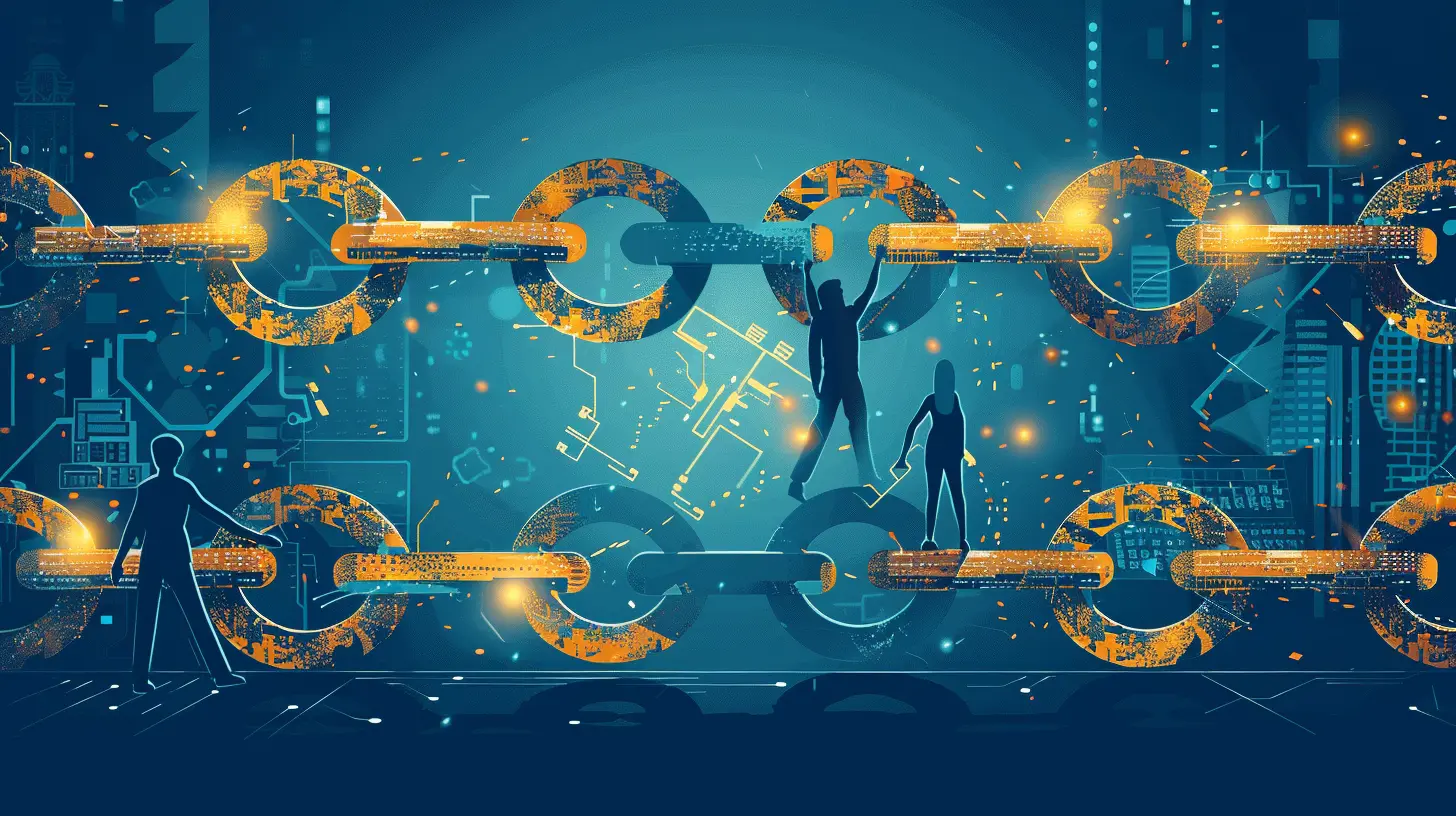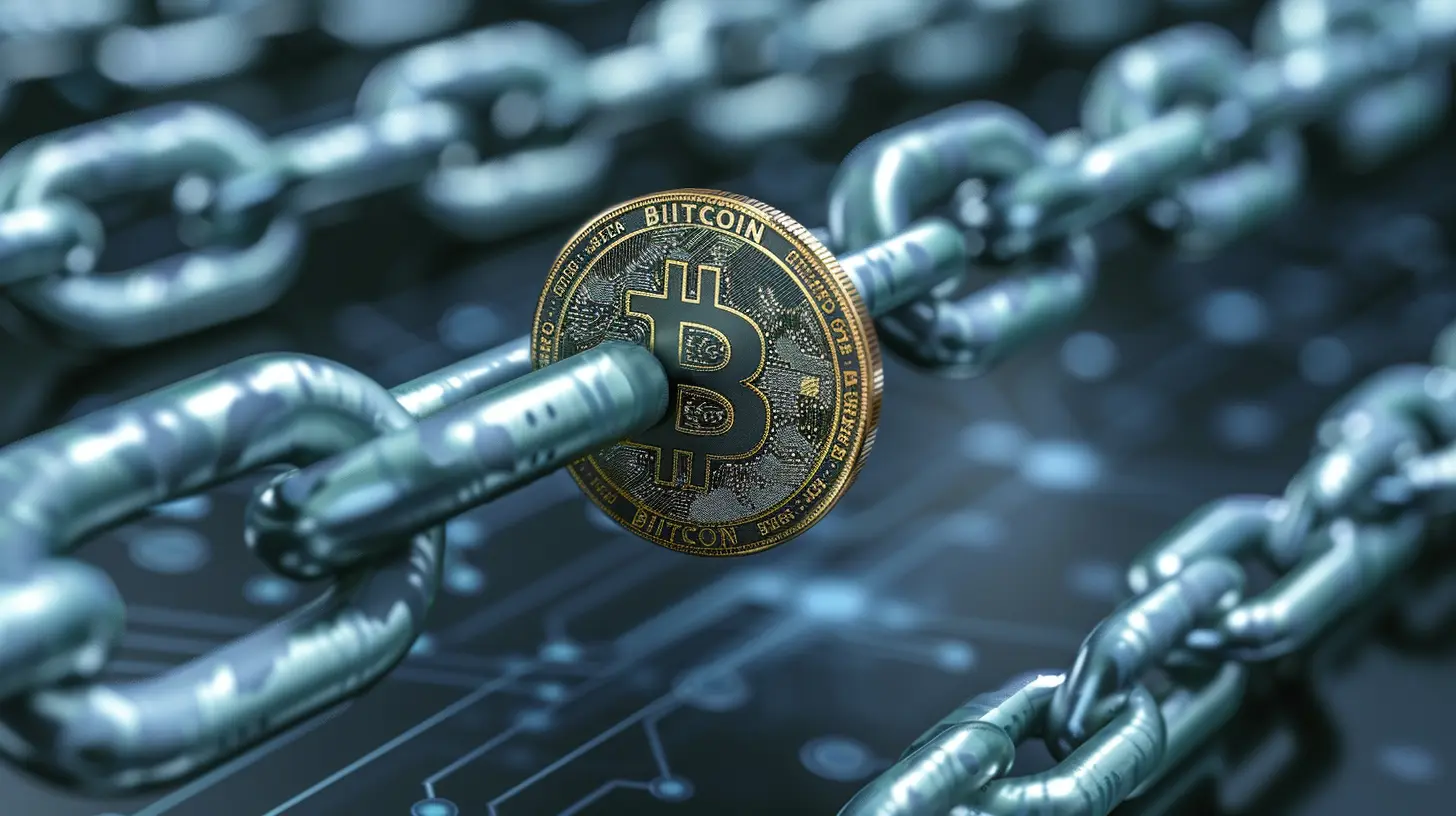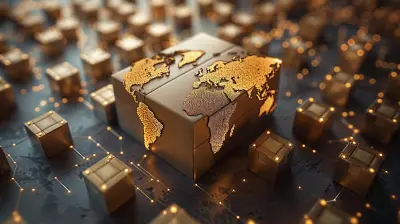Blockchain Technology and Its Role in Reshaping Global Economies
20 November 2025
If you’ve been anywhere near the internet in the past few years, you’ve probably heard about blockchain. It’s that buzzword tossed around with cryptocurrencies like Bitcoin and Ethereum. But let me tell you—blockchain is way more than just a background player for digital coins. It’s a groundbreaking technology that's slowly but surely changing how the global economy ticks.
So, if you’re curious about how this tech actually works and how it’s impacting everything from banking to banana farming (yep, really), then buckle up. We're about to break down blockchain and its role in transforming global economies in a way that’s simple, engaging, and, dare I say, kinda fun.
What is Blockchain Technology, Anyway?
Let’s start with the basics. Imagine a digital ledger—a fancy notebook, if you will—that records transactions. But unlike your run-of-the-mill spreadsheet, this ledger is:- Decentralized – no central authority owns it.
- Immutable – once something is recorded, you can’t change it.
- Transparent – everyone in the network can see the data.
Each “block” in the blockchain holds a group of transactions, and these blocks are linked (or "chained") together in a chronological and secure way. That means every time someone adds a new block, it gets verified by multiple computers (nodes) across the network. If it checks out, boom—it’s added to the chain.
You get trust without needing a middleman. Pretty slick, right?
How Blockchain Is Flipping Traditional Systems on Their Heads
Now that we know the basics, let’s talk about why people are calling blockchain a revolution in the making.1. Cutting Out the Middlemen
Think about how many intermediaries are involved in simple transactions. Buying a house? You need real estate agents, banks, notaries, and lawyers. Sending money overseas? You've got to deal with banks, wire fees, and wait times.Blockchain eliminates the need for these intermediaries. By using smart contracts—self-executing agreements written into code—transactions can happen automatically once conditions are met. No delays. No extra fees.
2. Enhancing Transparency and Trust
Trust is a huge deal in business, especially on a global scale. With blockchain, every transaction is recorded in a way that anyone in the network can verify. That means less room for fraud, manipulation, or shady backdoor deals.Let’s say you're sourcing coffee beans from a farm in Colombia. With blockchain, you can trace the supply chain from farm to cup, ensuring the beans are ethically sourced and fairly priced. It’s like having X-ray vision for your transactions.
3. Boosting Financial Inclusion
There are over 1.4 billion adults globally who don’t have access to banking services. That’s a massive portion of the population left out of the global economy.Blockchain, through decentralized finance (DeFi), is stepping in to fill the gap. With just a smartphone and internet connection, people in remote areas can access loans, insurance, savings platforms, and more—without ever stepping foot in a bank.
Blockchain’s Economic Impact: Industry by Industry
The global economy isn’t just about banks and governments. It’s a sprawling ecosystem of industries, and blockchain is making waves across all of them.1. Finance and Banking: The Obvious First Stop
Unsurprisingly, the financial sector is leading the blockchain charge. Banks are using it to speed up transactions, reduce fraud, and cut costs. Even central banks are experimenting with Central Bank Digital Currencies (CBDCs).Think of institutions like JPMorgan launching their own blockchain networks or entire countries like El Salvador adopting Bitcoin as legal tender. This isn’t just a trend—it’s a movement.
2. Supply Chain and Logistics: Bringing Clarity to Chaos
From food to fashion, supply chains are notoriously complex and often murky. Blockchain brings much-needed clarity. It allows every party in a supply chain to access real-time data, track products, and verify authenticity.Walmart, for instance, uses blockchain to trace produce from farms to shelves. If there’s a food recall, they can track down the source within seconds, not days.
3. Healthcare: Better Data, Better Outcomes
In healthcare, patient data is often scattered across different systems and providers. Blockchain can unify and secure that data, giving doctors a complete view of your medical history while keeping it private and safe.It also helps with drug traceability, ensuring counterfeit meds don’t end up in pharmacies. In a world affected by pandemic after pandemic, that's a game-changer.
4. Real Estate: From Weeks to Minutes
Buying or selling property usually involves piles of paperwork and weeks of waiting. Thanks to blockchain, property records can be digitized, ownership can be verified instantly, and deals can be closed much faster.Countries like Sweden are already testing blockchain-based land registries. And early adopters are seeing serious efficiency gains.
5. Energy: Decentralized Power Grids
What if you could sell your unused solar power to your neighbor using a blockchain-based system? That’s the idea behind decentralized energy markets. It’s peer-to-peer energy—clean, efficient, and empowering.Projects like Power Ledger in Australia are already letting users trade energy directly. No big utility companies required.
Blockchain’s Role in Global Economic Development
Okay, so we know blockchain is rattling industries. But what about its broader impact on global economies?1. Promoting Economic Equity
By leveling access to financial services and reducing reliance on corrupt systems, blockchain can help reduce inequality. In developing nations, this tech gives citizens the tools to build wealth, access credit, and participate in the global economy.2. Reducing Corruption and Increasing Accountability
Government corruption has long stunted economic growth in many regions. With blockchain-based voting and public expenditure tracking, it’s possible to create tamper-proof records that hold officials accountable.Imagine a world where every dollar spent on public projects is visible to everyone. That’s powerful.
3. Empowering Small Businesses
Small and medium enterprises (SMEs) often struggle with high currency exchange fees, lack of access to capital, and limited market reach. Blockchain-based platforms can connect them with global lenders, investors, and customers—no matter their size or location.The Challenges: Let’s Not Sugarcoat It
Alright, it’s not all sunshine and rainbows. Blockchain has its fair share of hurdles.1. Regulatory Uncertainty
Laws around blockchain and crypto vary wildly from country to country. Some governments embrace it; others ban it. This patchy regulation makes it tough for businesses to confidently invest in blockchain solutions.2. Scalability Issues
Most blockchains are still relatively slow compared to traditional systems. Bitcoin, for instance, processes about 7 transactions per second. Visa? Around 24,000. That’s a huge gap that needs closing.3. Energy Consumption
Proof-of-work blockchains like Bitcoin consume massive amounts of energy—enough to power entire countries. This raises big environmental concerns. The good news is, more eco-friendly alternatives like proof-of-stake are gaining ground.4. User Adoption and Education
Let’s face it: blockchain isn’t the easiest thing to understand. Widespread adoption hinges on making it user-friendly and educating the masses.What's Next for Blockchain and the Global Economy?
So where is all this headed?- Mainstream Integration – We’ll see more companies integrating blockchain into day-to-day operations, even if users don’t realize it.
- Government Adoption – Expect more countries to issue digital currencies and use blockchain for services ranging from voting to tax collection.
- Interoperability Solutions – Projects are working on making different blockchains “talk” to each other. This creates a more unified system.
- Increased Accessibility – Easier user interfaces and better education will bring blockchain to the average Joe and Jane.
Blockchain has already moved from hype to reality. And as the tech matures, its role in reshaping global economies will only grow.
Final Thoughts
We’re standing at the edge of a digital transformation, and blockchain is one of the engines driving us forward. Sure, there are bumps along the road, and yes, the technology still has growing up to do. But just like the internet revolutionized the world in the 90s and 2000s, blockchain is poised to do the same in the coming decades.Whether it’s giving power to the unbanked, cutting corruption, or transforming industries, blockchain isn’t just a passing fad—it’s a fundamental change in how we move, verify, and trust information and value.
The question now isn’t if blockchain will reshape the global economy. It’s how fast.
all images in this post were generated using AI tools
Category:
Blockchain In BusinessAuthor:

Baylor McFarlin
Discussion
rate this article
1 comments
Elowyn Kline
This article offers valuable insights into how blockchain technology is revolutionizing global economies. By enhancing transparency, security, and efficiency in transactions, it paves the way for innovative business models and strengthens trust in digital economies. A must-read for industry professionals!
November 21, 2025 at 4:53 AM

Baylor McFarlin
Thank you for your thoughtful comment! I'm glad you found the article insightful and valuable for industry professionals. Your support is appreciated!


